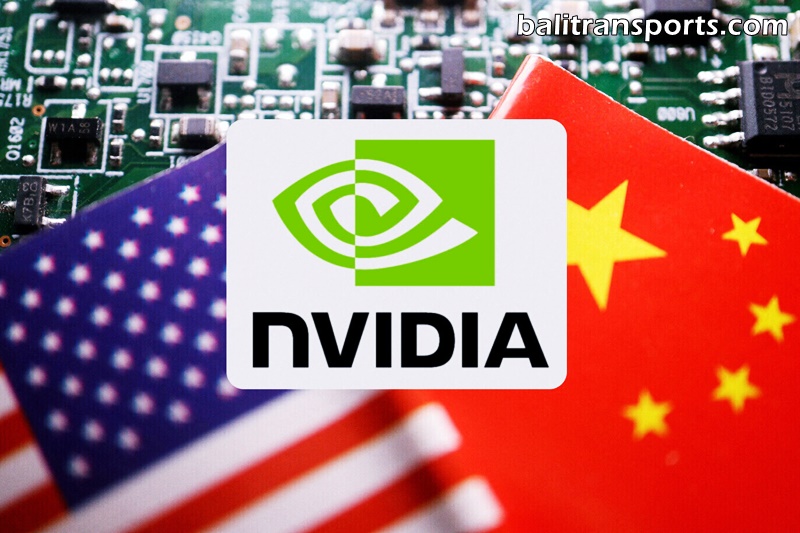Beijing | Thursday | July 31, 2025
China has raised red flags over potential security vulnerabilities in Nvidia’s H20 artificial intelligence (AI) chip, heightening uncertainty about the US company’s ability to sustain or expand sales in the Chinese market—just weeks after the United States reversed a ban on the chip’s export to China.
In a statement released Thursday, the Cyberspace Administration of China (CAC), the country’s top internet watchdog, said it had summoned Nvidia representatives for a meeting to address concerns that the H20 chip might include “backdoor” features capable of compromising Chinese user data and infringing on privacy rights. These concerns stem from a recent US legislative proposal that would require advanced AI chips exported abroad to be equipped with location-tracking and positioning functions to ensure compliance with export controls and prevent misuse.
Specifically, the CAC referred to the proposed US legislation introduced in May by Senator Tom Cotton. The bill aims to empower the US Commerce Department to enforce chip location verification as a national security measure designed to restrict Chinese access to high-performance US semiconductor technologies. While the bill has yet to become law, its intent has already triggered alarm in Beijing.
Nvidia has not responded publicly to the CAC’s summons or to media inquiries, including those from Reuters.
This latest scrutiny from Chinese regulators marks another chapter in Nvidia’s fraught positioning within the ongoing US-China tech rivalry. In April, Washington placed the H20 chip—designed specifically for the Chinese market—under an export ban as part of sweeping measures to curb Beijing’s AI development. However, earlier this month, US authorities quietly reversed the ban, allowing Nvidia to resume shipments of the H20 to China.
The chip has become central to Nvidia’s strategy in China. Designed with specifications to comply with US export restrictions, the H20 offers Chinese companies limited—but still powerful—AI processing capabilities. According to a Reuters report, Nvidia recently placed an order for 300,000 H20 units, suggesting strong domestic demand among Chinese tech firms and research institutions.
Nvidia CEO Jensen Huang appeared to be making an effort to smooth over tensions with a highly publicized visit to China in June. During the trip, Huang met with Chinese officials, lauded the country’s progress in AI, and expressed Nvidia’s continued interest in the Chinese market. The visit was widely interpreted as a charm offensive aimed at protecting Nvidia’s position amid rising regulatory pressures on both sides of the Pacific.
Despite the US government’s partial easing of restrictions, Chinese regulators are stepping up their scrutiny of foreign semiconductor players. The CAC did not clarify what specific actions it might take following its investigation into the H20 chip, nor did it detail the precise nature of the alleged “backdoor” risks.
This is not the first time China has accused US chipmakers of endangering national security. In 2023, Beijing banned domestic critical infrastructure operators from purchasing chips from Micron Technology, citing security risks identified in a government review. Around the same time, the Cybersecurity Association of China urged a review of Intel’s products for similar concerns, although regulators have yet to take public action on that front.
Moreover, Nvidia is already under the microscope in China for separate reasons. The State Administration for Market Regulation (SAMR), China’s top antitrust authority, is currently conducting an investigation into Nvidia over suspected violations of the country’s anti-monopoly law. The probe reportedly focuses on Nvidia’s compliance with conditions attached to its 2020 acquisition of Mellanox Technologies, an Israeli chip design firm. SAMR has accused Nvidia of potentially breaching commitments made during the merger approval process.
The combination of cybersecurity scrutiny and antitrust pressure puts Nvidia in an increasingly precarious position in China, even as it remains one of the few US tech companies still able to maintain a significant business presence in the country’s lucrative AI sector.

